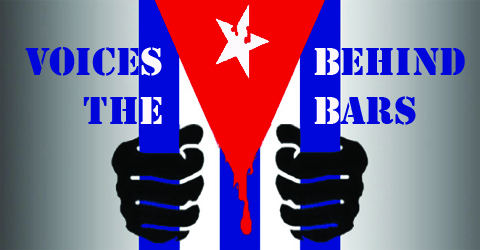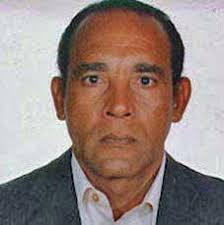
We all regret something at least once in our lives, and if you’re in jail, believe me, this occurs more often than when you are free. In my case, I really regret not attending at least once, in these 6 years and 5 months, one of the morning events that take place every week in the prisons where I have been. My childish bias is to consider these events as political acts when in reality they are just insults to the intelligence of even the most mediocre of men.
Today, while I took a bath to cool off from this exhausting summer heat, I heard the common prisoner Javier Pérez Piñeiro exclaim: “It’s true that this director of Canaleta is fantastic. Can you all believe that Lt. Colonel Reineiro Díaz Betancourt said in one of these morning events that he can’t eat the food that they give us”? I pondered this, and I’m sure that never, in his whole life, has this official of vast experience in the Ministry of the Interior in the branch of jails and prisons spoken such an absolute truth.
About two or three weeks ago, here in Canaleta they offered black beans on the menu, a preferred dish amongst the every-day Cuban. Imagine for the prisoners that they have no other option than what is served to them by the guards. Today, when I was about to ingest my black beans, somebody shouted: “People, these beans have worms”! My stomach turned and my mind froze for a few seconds. Upon reacting, I called the official of the interior and he called the re-educator of my barracks. Immediately, an officer appeared with a bracelet that identified him as an assistant to the head official. I showed my ration of beans to him and to the guard of my hall, and I am convinced that both where shocked upon seeing the dead little worms on the surface of the bean broth dancing a Reggaeton like Dali Yam. Both these men promised me that the re-educator would take the matter in hand.
I was not going to settle with that. I needed to see Reineiro Díaz Betancourt. It couldn’t be. The barracks chief asked to see me close to 8 at night. The recount had already passed. Either because of foolishness or just simple tiredness, I had already thrown away the disgusting beans, which I also regret. Joel Prado, the re-educator, informed me that the problem was solved. He also let me know that Reineiro Díaz Betancourt knew about the case, but I was guilty of having thrown away the convincing evidence. I only remember telling him: “Don’t worry about it. It won’t happen again, I guarantee it.”
That day I did not eat lunch. I couldn’t. For dinner I just ate a little piece of chicken that they give me for my diet. I should clarify that my pathology is paradoxical: I cannot lose weight due to my kidney arthrosis. Yet I cannot gain weight either because of the operation in my right knee due to the multiple dislocations caused by not getting sun during my first 18 months of captivity in the gloomy Agüica prison, and to top it off, I also cannot ingest a series of foods because I also suffer from a chronic gastro-intestinal condition. It is crazy, but I have to keep going.
The next day the beans disappeared by magic and they started giving us chickpeas. Happiness lasts very little in the house of the poor. Today, August 12, the common prisoner Abelardo Requeo Peñeranda discovered weevils in his chickpea soup and screamed in alarm. Hortelio Vázquez Santana, Heriberto Castillo Sánchez, and Pedro Julio Ferrer Rodríguez all joined him. They all found at least one bug in their food. Pedro Julio Ferrer Rodríguez stated: “Even if I find a dead mouse I will eat this food. I am a prisoner and have no other option.” I felt sorry for him. I did not eat lunch or dinner. But in Cuban prisons no one dies of hunger, for sure.
If I did not have my visits every 30 days, I would have most likely passed through the operating room for a second time. Now I remember that during my first 35 days of captivity I lost some 25 pounds. This caused my right kidney to descend to the extent that I have not recuperated after 6 years and 5 months. Now I wait for tomorrow’s lunchtime so I can keep the evidence that I need in order to show it to a guard of higher rank than Joel Pardo, the re-educator. I will even ask to see the chief of medical services though I know perfectly well that they all cover up everything.
I also have to remain tactful, since prisoners sometimes don’t understand that they need to eat beans and chickpeas, that it’s the best they are offered all year.
To end, I place a question on the table: In a prison with more than 1,100 prisoners can’t there be one group that chooses the grains that will feed the rest of the penal population? Perhaps I will know the answer to this query tomorrow.
Pablo Pacheco
Canaleta Prison, Ciego de Avila
Footnote: The “morning events” (matutinos in Spanish) that are mentioned signify meetings in the prisons that inform the prisoners of news events, mainly of political issues. Many times they read prisoners excerpts of newspapers or articles and usually include “aggressiosn from the North”. In other words, many times they are just manipulated political information intended to add to the rhetoric against the “imperialistic enemy states”. Sometimes, though, it can just be random local or international news.
September 14, 2009
Categories: General . . Author: voicesbehindbars . Comments: Leave a comment















